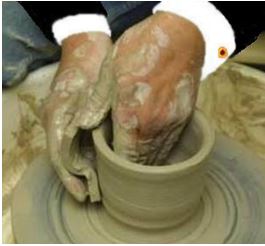
“HANDS-ON” MANAGEMENT
In some professions, the individual with the most training is the one who has his or her hands on the product. In the hospital the doctor is the one who goes into the operating room and guides the scalpel. In a law firm, it is the attorney who goes into the courtroom and presents the case. In factory management, the man or woman in charge delegates the “hands–on” responsibility to the operators. Some of those operators are put to work days after being hired.
This may be stretching it a bit, but imagine that the person hired by the hospital a week ago will be operating on you this afternoon. What if the law clerk that came on board last Friday will be defending you in court Monday? Exaggerations of course, they present the problem.
The person who is operating on your clients’ product can be someone who started working in your plant two weeks ago. Imagine again that doctors and lawyers would want those new recruits to perform their tasks. How would they go about assuring that those individuals would do the jobs correctly?
In delegation, the person you are assigning needs to be qualified to do the work. If the work is complicated and the employee is new, delegation is not going to get you results. What do you do in this situation? It is not like the hospital—here operators, or those who process your products, far outnumber the managers and engineers. And there are not a couple of hundred patients to work on—there are thousands of units to work on.
The answer, of course, is to simplify the tasks to the point that people that have little experience can perform the work successfully. You would also want to develop as many error proof techniques as possible (Poka Yokes to those of you familiar with Japanese manufacturing techniques.) As the work force gets more experienced, it will be able to perform more complicated assignments.
“Hands on” is good from the standpoint of knowing what is going on. There is a real difference between talking about something and being able to do it. Many want ads state that they want a “hands on” manager. That usually tells you that past managers had no idea about what was going on in the plant. A manager must not only know what’s going on in the production floor—he or she must know that the right things are going on. A manager needs to develop confidence in the people that report to him or her and needs to have a “hands on” approach, using management by walking around as more responsibility is delegated.
— Michael Grunsten